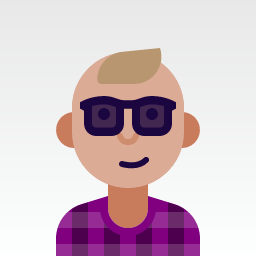Germans appreciate politeness and professionalism in their interactions, and a warm greeting is crucial for building good rapport. Expressing enthusiasm about meeting someone can set a positive tone right from the start. In this guide, we will explore how to say “Looking forward to meeting you” in German, offering both formal and informal variations. While regional differences exist, we will focus on the commonly used phrases across Germany.
Formal Expressions
When addressing someone in a professional context, such as in a business or formal setting, you can use the following phrases to express your anticipation:
1. “Ich freue mich darauf, Sie kennenzulernen.”
This formal expression directly translates to “I am looking forward to getting to know you.” It conveys a polite and professional tone. Here, “Ich” means “I,” “freue mich” means “look forward to,” “darauf” means “to it,” and “Sie kennenzulernen” means “to get to know you.”
2. “Es wird mich freuen, Sie persönlich kennenzulernen.”
This slightly longer phrase translates to “It will bring me joy to personally get to know you.” Using the reflexive verb “sich freuen” (to be pleased/joyful) emphasizes the anticipation, while “persönlich” (personally) adds an extra touch of politeness and warmth.
3. “Ich bin gespannt darauf, Sie zu treffen.”
This phrase means “I am excited to meet you” and is a more formal expression. “Gespannt” means “excited” or “eager,” and “treffen” means “to meet.”
Informal Expressions
When interacting with friends, colleagues, or in a more casual environment, you can use the following informal expressions:
1. “Ich freue mich, dich kennenzulernen.”
Using the informal pronoun “dich” for “you,” this phrase translates to “I am looking forward to getting to know you” in an informal context.
2. “Ich kann es kaum erwarten, dich zu treffen!”
Translating to “I can’t wait to meet you,” this expression adds a touch of excitement and enthusiasm. “Kaum erwarten” means “can’t wait” or “can hardly wait.”
3. “Freu mich schon darauf, dich zu sehen!”
This more colloquial phrase means “I’m already looking forward to seeing you!” “Freu mich schon darauf” is an informal way of expressing anticipation.
Some Regional Variations
While the phrases mentioned above are widely understood across Germany, it is worth noting that there may be slight regional variations in certain areas. For example:
In Southern Germany and Austria, the phrase “Ich freu’ mich auf’s Kennelernen” is commonly used. The contraction “freu'” is used instead of “freue” for “I am looking forward to,” and “auf’s Kennenlernen” translates to “to the getting to know.” This variation maintains a warm and friendly tone while leaning towards colloquial language.
Tips and Examples
1. When using these expressions, remember to maintain a pleasant and warm tone, as Germans appreciate politeness and friendliness.
2. Using gestures to accompany your words can enhance your message, such as a genuine smile or a friendly handshake.
3. If writing an email, consider starting with a polite opening, such as “Sehr geehrter Herr” (Dear Mr.) or “Sehr geehrte Frau” (Dear Mrs./Ms.).
4. Here are some examples of using the phrases discussed:
Formal: Sehr geehrter Herr Schmidt, ich freue mich darauf, Sie kennenzulernen und über unser zukünftiges Projekt zu sprechen.
Translation: Dear Mr. Schmidt, I am looking forward to meeting you and discussing our future project.
Informal: Hallo Anna! Ich freue mich, dich kennenzulernen. Lass uns bald auf einen Kaffee treffen.
Translation: Hi Anna! I am looking forward to getting to know you. Let’s meet for coffee soon.
Conclusion
Expressing your enthusiasm about meeting someone is a great way to start any interaction in German. Whether you choose to use formal or informal expressions, remember to maintain a warm and polite tone, adapting to the context of your conversation. By using the phrases and tips provided in this guide, you can confidently express your anticipation in German!

